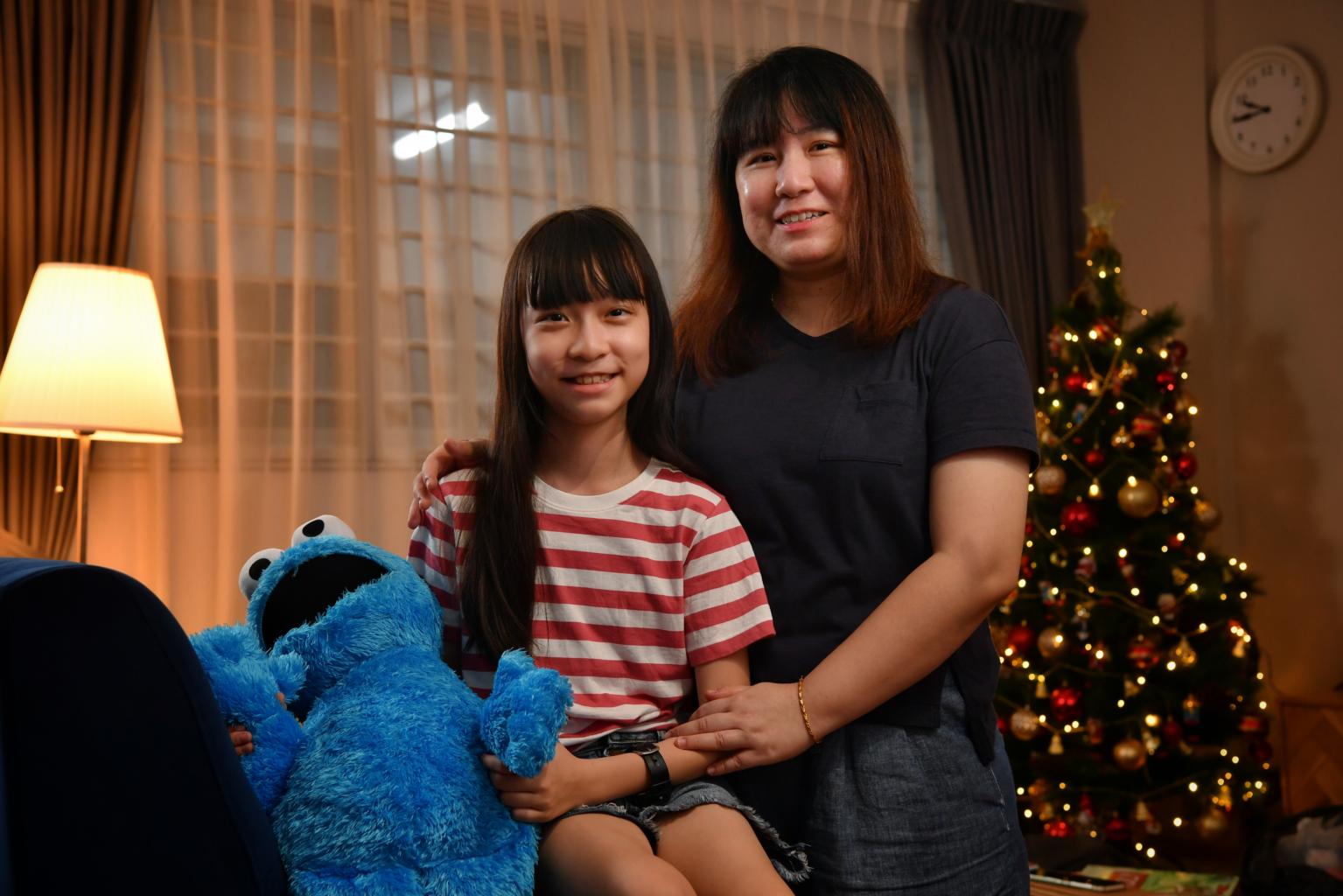Long-term effects of Covid-19 vaccination among concerns raised by parents of kids aged 5 to 11
Sign up now: Get ST's newsletters delivered to your inbox

Ms Hilde Sng said she wants her daughter, Averild Heloise, to be vaccinated as soon as possible to protect her against Covid-19.
ST PHOTO: CHONG JUN LIANG
Follow topic:
SINGAPORE - Operations manager Hilde Sng, 42, has been waiting to get her daughter vaccinated against Covid-19 since the Pfizer-BioNTech/Comirnaty jab was approved for younger children, and now she will finally get the chance.
Primary 4 to 6 pupils will be the first to undergo the upcoming Covid-19 vaccination exercise that will involve more than 300,000 children aged five to 11. The exercise will begin next Monday (Dec 27).
Ms Sng, whose 10-year-old daughter will be in Primary 5 next year, said she wants her child to be vaccinated as soon as possible to protect her against Covid-19.
"Children in other countries have already gotten vaccinated, and even my mother who has been undergoing chemotherapy took it and was fine, so I believe it is safe," she said.
The safety and efficacy of the vaccine were among questions raised by parents at a webinar last Saturday. The event was jointly organised by the Ministry of Health (MOH) and the Ministry of Education to address their concerns.
Parents also asked whether the vaccine is suitable for children who have allergies or medical conditions. Concerns about whether the vaccine might have long-term effects on children's health, including on their puberty and future fertility, were also raised.
Doctors from MOH and KK Women's and Children's Hospital (KKH) said there is no evidence to suggest that there would be any long-term effects on children's health, including their development, based on data from the United States and local trials, though they added that only time will tell whether this is certain.
Dr Derrick Heng, group director (public health) at MOH, said: "The vaccine typically disappears from the body after a few days and is meant to stimulate the immune system to recognise the virus... there is no reason to expect that there will be long-term effects from it."
Parents at the webinar, which drew about 700 attendees, also asked questions about how other conditions their children might suffer from, such as asthma or attention-deficit hyperactivity disorder, might interact with the vaccine.
Associate Professor Thoon Koh Cheng, senior consultant at KKH, said only children with allergies to any components of the vaccine or those who have had an allergic reaction to the first dose are not suitable for it.
Dr Chan Si Min, head consultant at the paediatrics department's division of paediatric infectious diseases at National University Hospital, said all other children, including those with general medical conditions such as asthma, should be able to take the vaccine safely.
Still, some parents are choosing to wait it out.
Investment manager Adrian Khoo, 48, said he would not rush into vaccinating his younger children, who turn nine and six next year.
"I'm not against vaccinating them, but it didn't really cross my mind that it was this urgent for younger kids to get vaccinated, given that they're not exactly a high-risk group," he said.
Mr Khoo's older children, who will be 17 and 19 years old next year, have already been vaccinated. "There was a lot of urgency for their age group to get vaccinated as it was very close to their preliminary (examinations). Both of them had no issues with the vaccine and have booked their booster shots for early next year."
For his younger children, Mr Khoo said: "In a way, we probably have no choice but to vaccinate them, in the sense that if it's to facilitate a more convenient life day to day, then it's the responsible thing to do, if there are no issues and complications.
"If it's going to be very difficult to go out or take part in school activities for kids not vaccinated, then I guess we have to trust the health authorities that sufficient trials have been done to make sure it's safe."
Another parent, Ms Liv Octavia, 35, does not plan to register her three children - aged nine, seven and four - for the vaccination.
The housewife said: “Why not wait longer for more studies to be done and let the kids have more choices?”

